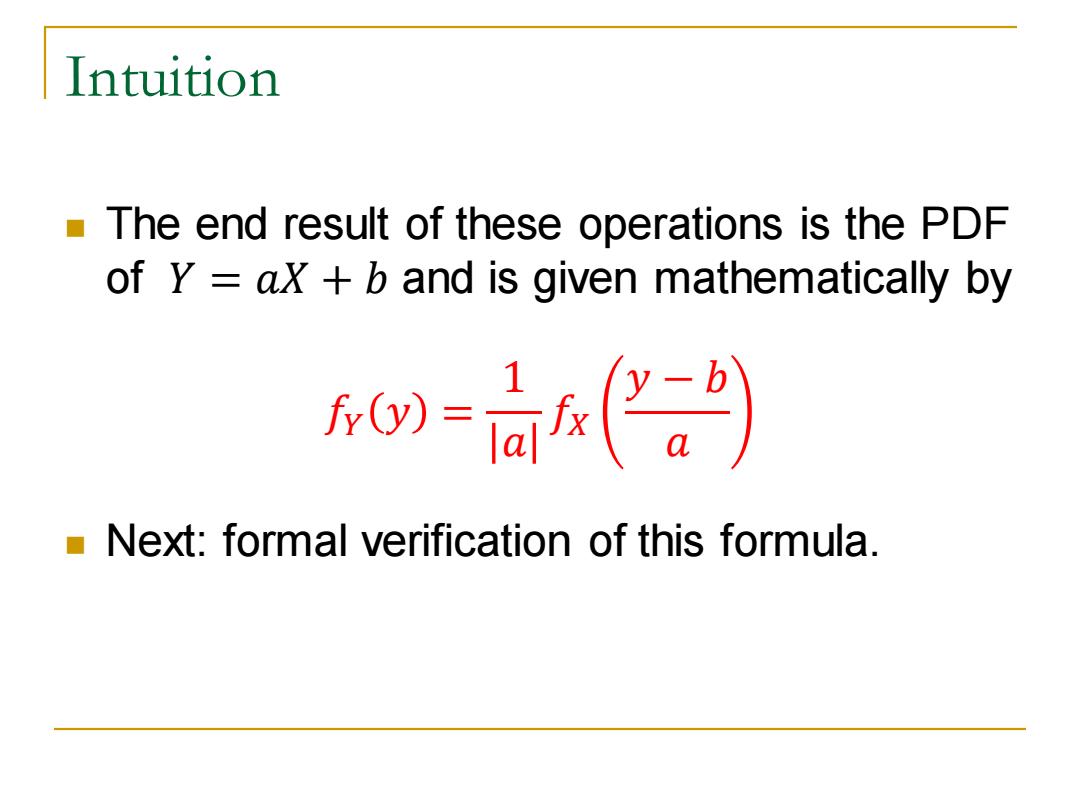
Intuition The end result of these operations is the PDF of Y =ax b and is given mathematically by =向(。) Next:formal verification of this formula
Intuition ◼ The end result of these operations is the PDF of 𝑌 = 𝑎𝑋 + 𝑏 and is given mathematically by 𝑓𝑌 𝑦 = 1 𝑎 𝑓𝑋 𝑦 − 𝑏 𝑎 ◼ Next: formal verification of this formula
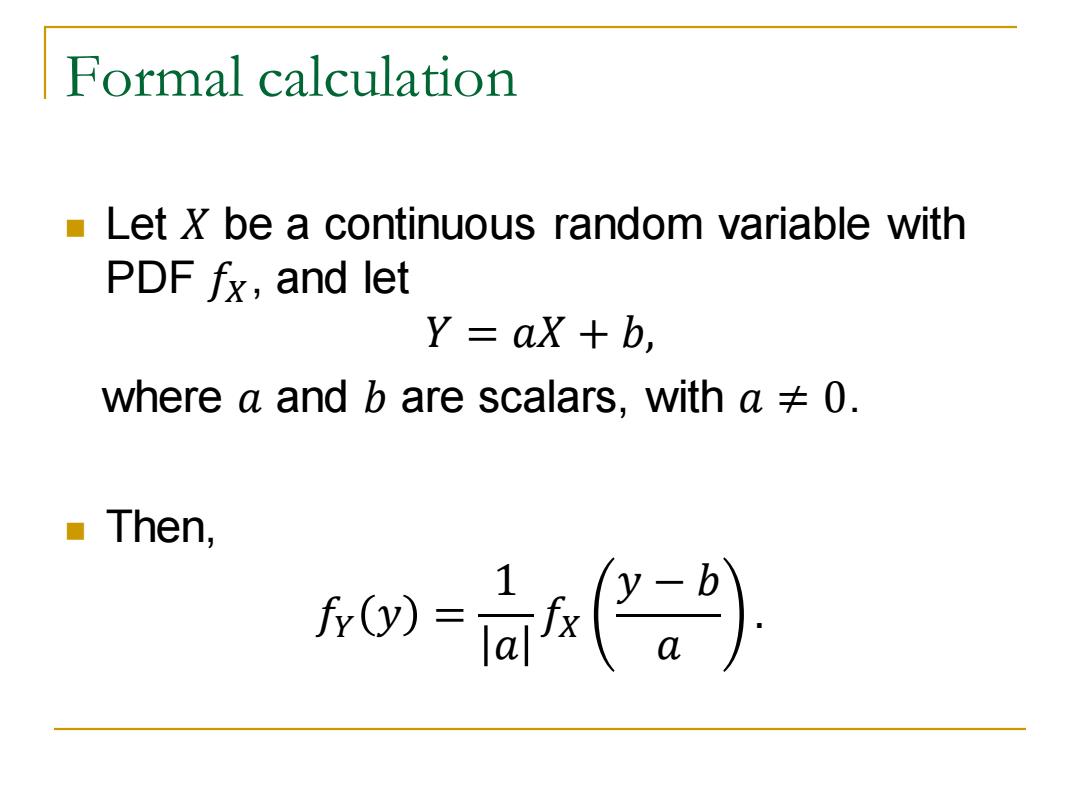
Formal calculation Let X be a continuous random variable with PDF fx,and let Y=ax+b, where a and b are scalars,with a 0. Then, o的=间(。)
Formal calculation ◼ Let 𝑋 be a continuous random variable with PDF 𝑓𝑋, and let 𝑌 = 𝑎𝑋 + 𝑏, where 𝑎 and 𝑏 are scalars, with 𝑎 ≠ 0. ◼ Then, 𝑓𝑌 𝑦 = 1 𝑎 𝑓𝑋 𝑦 − 𝑏 𝑎
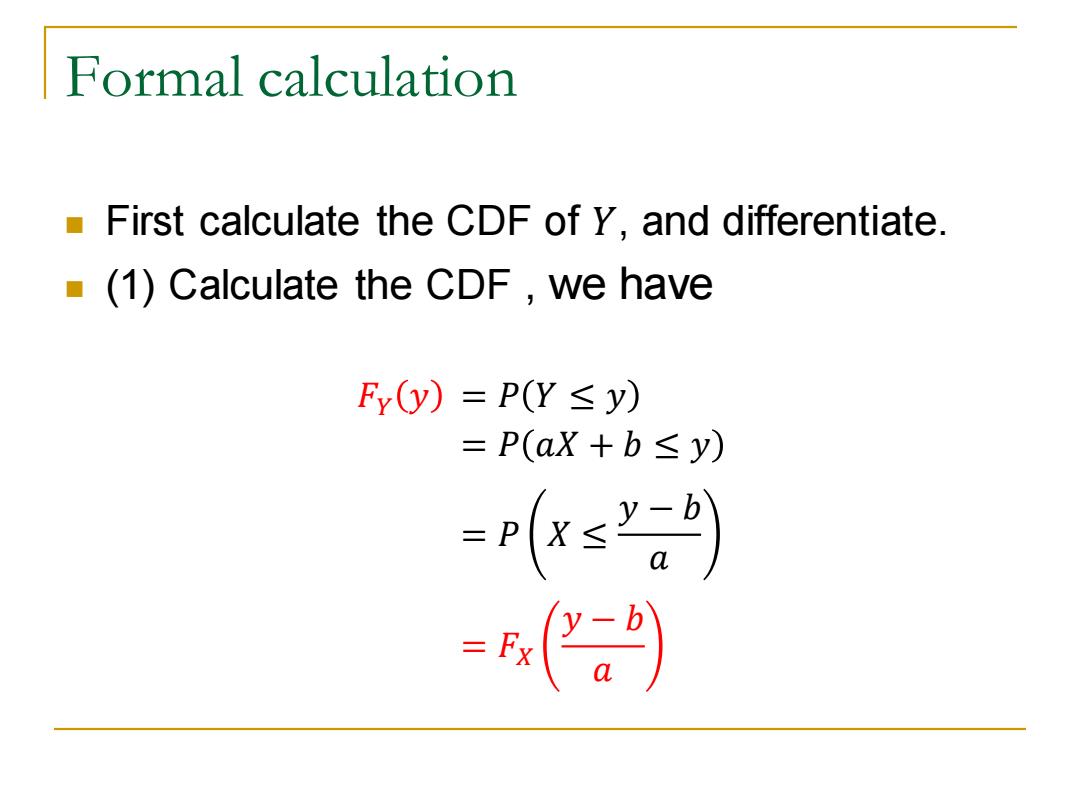
Formal calculation First calculate the CDF of Y,and differentiate. (1)Calculate the CDF,we have Fy(y)=P(Y≤y) =P(aX+b≤y) -P(s’。)
Formal calculation ◼ First calculate the CDF of 𝑌, and differentiate. ◼ (1) Calculate the CDF , we have 𝐹𝑌 𝑦 = 𝑃 𝑌 ≤ 𝑦 = 𝑃 𝑎𝑋 + 𝑏 ≤ 𝑦 = 𝑃 𝑋 ≤ 𝑦 − 𝑏 𝑎 = 𝐹𝑋 𝑦 − 𝑏 𝑎
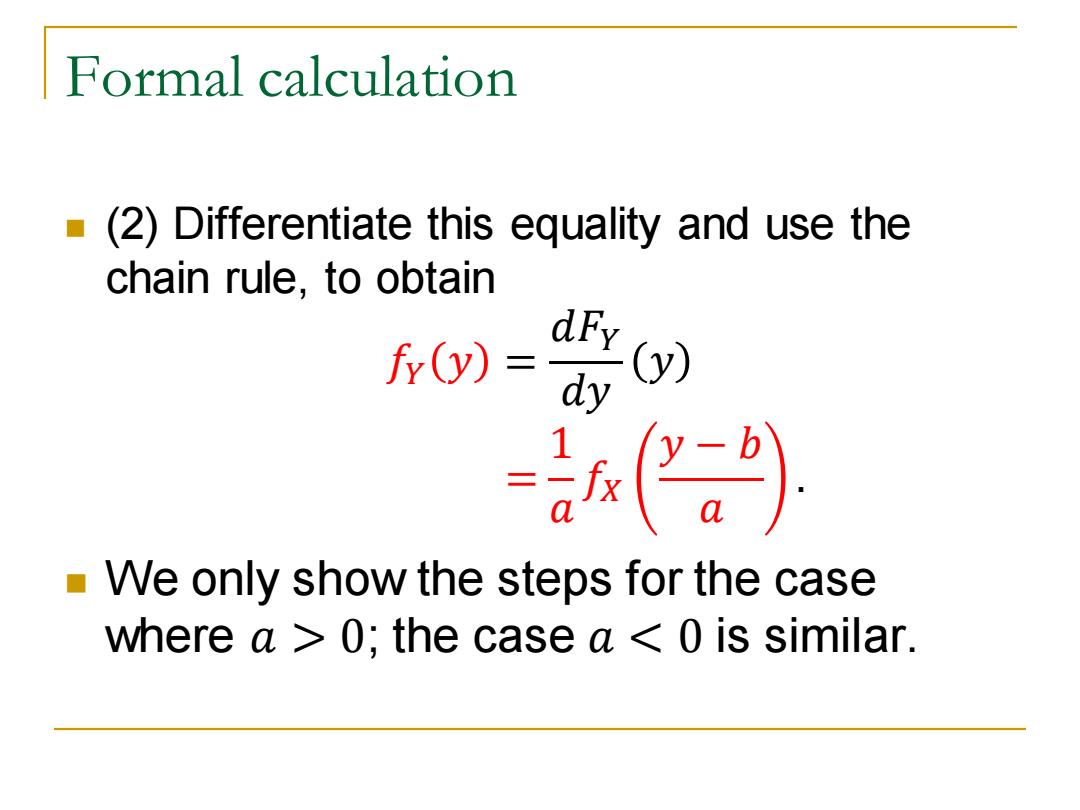
Formal calculation (2)Differentiate this equality and use the chain rule,to obtain fy(y)= dy (y) We only show the steps for the case where a 0;the case a<0 is similar
Formal calculation ◼ (2) Differentiate this equality and use the chain rule, to obtain 𝑓𝑌 𝑦 = 𝑑𝐹𝑌 𝑑𝑦 𝑦 = 1 𝑎 𝑓𝑋 𝑦 − 𝑏 𝑎 . ◼ We only show the steps for the case where 𝑎 > 0; the case 𝑎 < 0 is similar
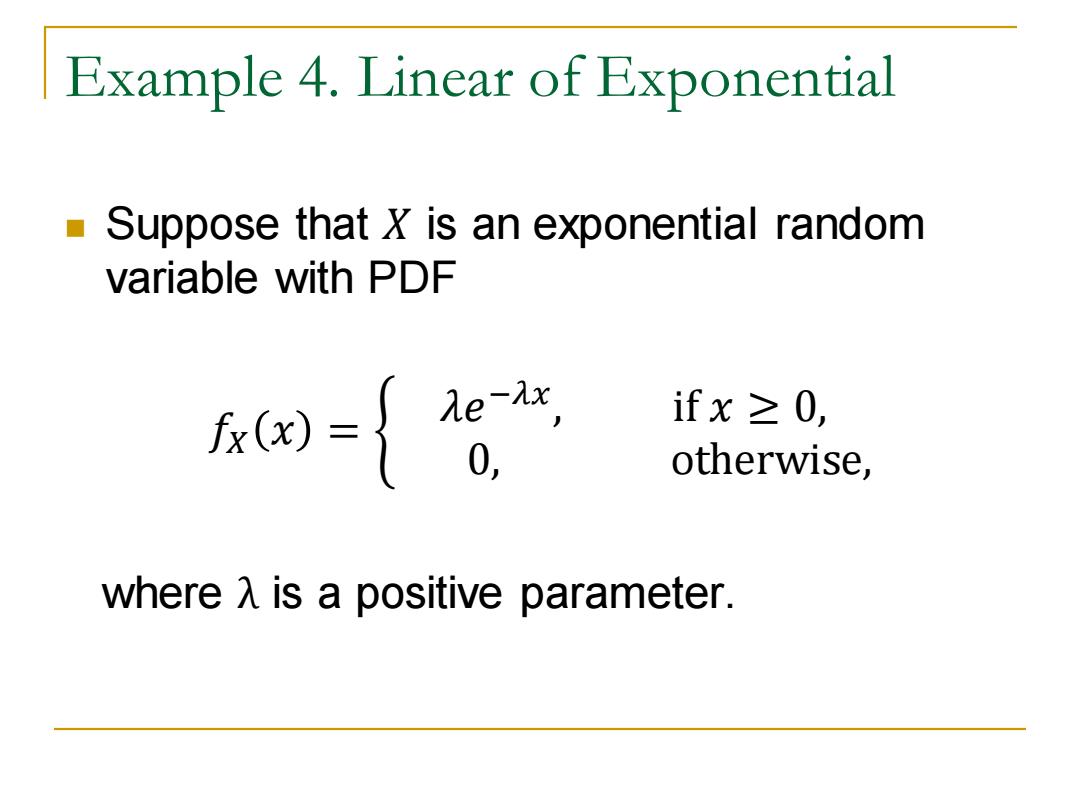
Example 4.Linear of Exponential Suppose that X is an exponential random variable with PDF )={ Ae-Ax ifx≥0, 0, otherwise, where A is a positive parameter
Example 4. Linear of Exponential ◼ Suppose that 𝑋 is an exponential random variable with PDF 𝑓𝑋 𝑥 = ቊ 𝜆𝑒 −𝜆𝑥 , if 𝑥 ≥ 0, 0, otherwise, where λ is a positive parameter